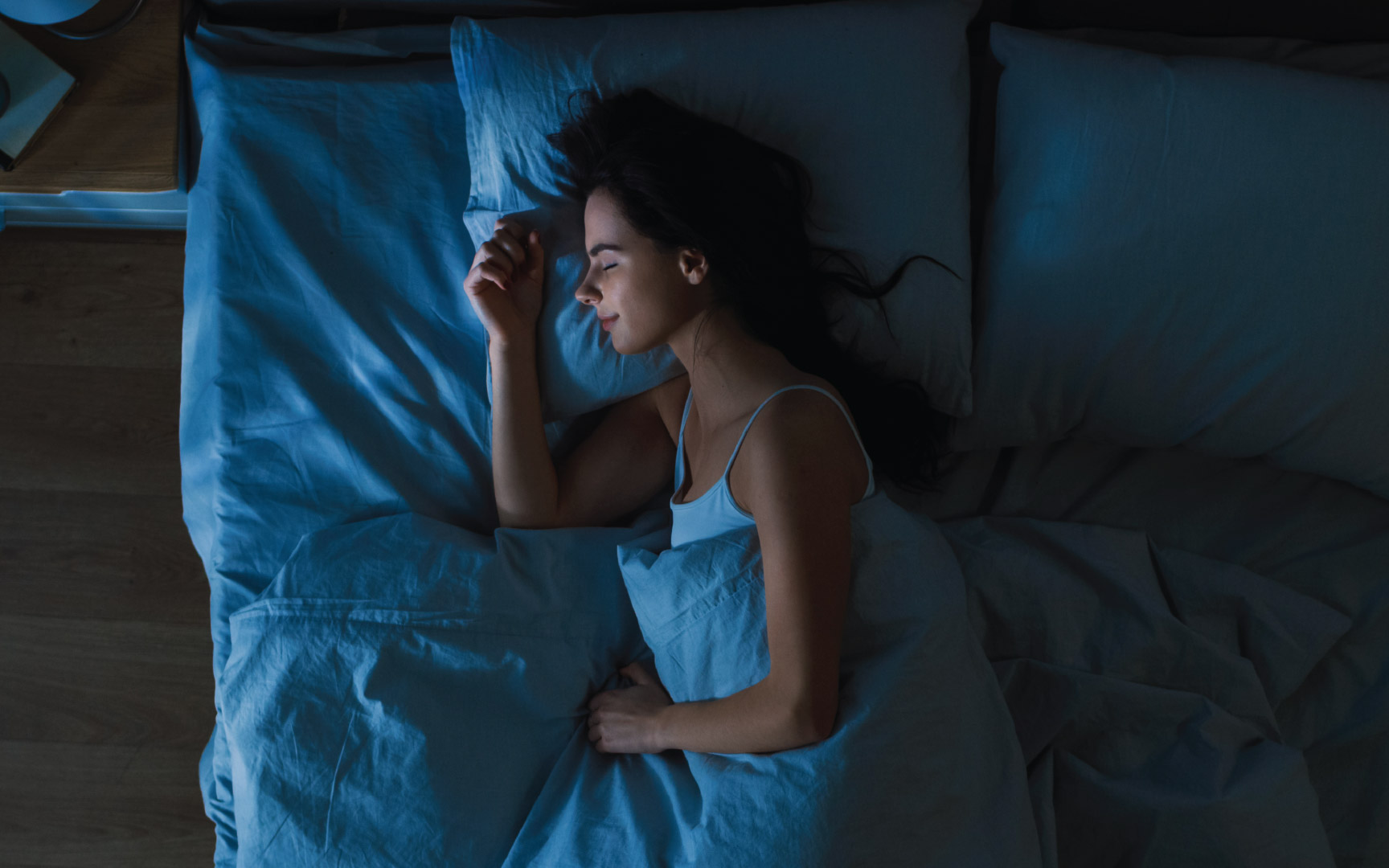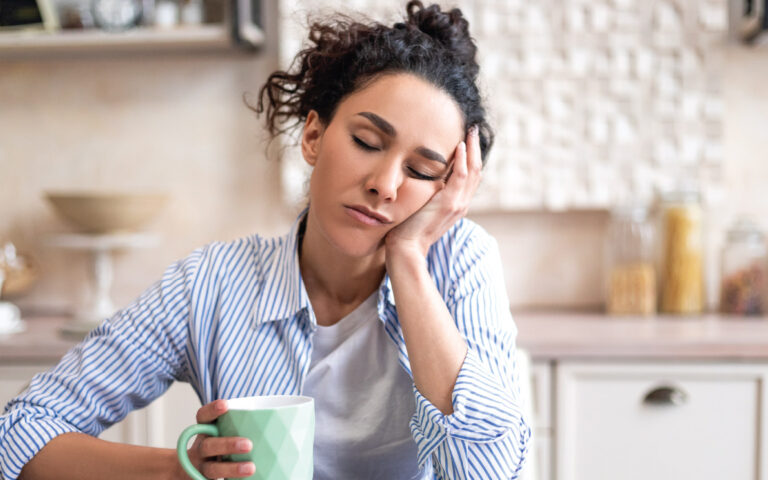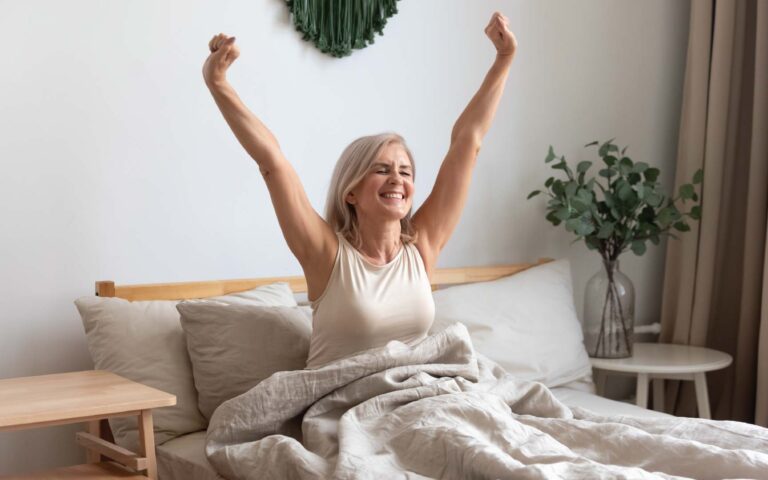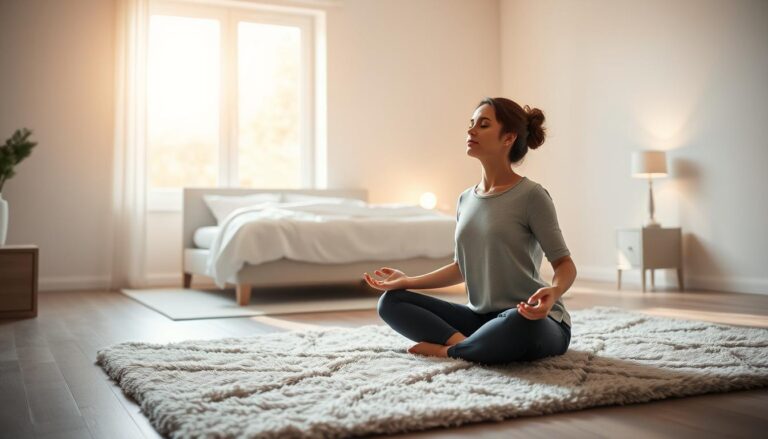Ever felt like sleep is playing hide and seek with you at night? My fight with insomnia has been long and tough. It really affects my daily life and how well I sleep.
Sleep issues are more than just a minor problem. They’re a big challenge for millions of Americans. They take away our energy and mess up our work.
In this article, I’ll share my personal experiences and helpful tips. Whether you have trouble sleeping sometimes or all the time, there’s hope. You can get the good sleep you need.
Key Takeaways
- Understand the root causes of sleep disruptions
- Learn practical strategies for improving sleep quality
- Recognize how lifestyle impacts your nightly rest
- Discover natural remedies for sleeplessness
- Create an optimal sleep environment
Struggling to Fall Asleep or Stay Asleep?
Discover a simple, natural solution that helps you fall asleep faster, stay asleep longer, and wake up refreshed.
👉 Learn the Sleep Trick That’s Helping Thousands »
Common Causes Behind Sleepless Nights
Many people struggle with sleep. Knowing what causes sleep disorders can help you sleep better. Physical and mental issues can disrupt your sleep.

Sleep is more than just closing your eyes. It’s a complex process affected by many things. Stress and sleep are closely linked, making it hard to break the cycle.
Physical Factors Affecting Sleep Quality
Physical conditions can greatly affect sleep. Chronic pain, hormonal imbalances, and diet can disrupt sleep. Caffeine, irregular exercise, and health issues can also prevent good sleep.
Mental and Emotional Sleep Disruptors
Anxiety and depression can make it hard to sleep. Racing thoughts, work stress, and emotional issues can block relaxation. It’s important to recognize these mental barriers to find ways to sleep better.
Environmental Impact on Rest
Your sleep environment is crucial for quality sleep. Room temperature, lighting, noise, and bedding all matter. A calm, comfortable sleep space is essential for better sleep.
Understanding Your Sleep Cycle and Patterns

Learning about sleep stages changed how I rest. Our bodies go through different cycles at night. These cycles are key for our body and mind to recover.
My journey into sleep hygiene showed me the importance of our circadian rhythm. This internal clock controls when we sleep and wake. It responds to light and darkness. Tracking my sleep cycles showed me how things like screens and irregular schedules can mess with it.
Each sleep stage has its own role. Light sleep helps us move from being awake to deeper rest. Deep sleep helps our body fix itself and boost our immune system. REM sleep is important for remembering things and handling emotions.
Keeping a regular sleep schedule helps our circadian rhythm. Going to bed and waking up at the same time every day improves sleep. Simple habits like less screen time and a calming bedtime routine can greatly improve sleep.
Knowing about sleep patterns helped me make better choices for rest. By listening to my body’s natural rhythms and practicing good sleep habits, I turned my nights from restless to restful.
Still Tired After 8 Hours of Sleep?
It might not be how long you sleep, but how well. Learn the secret to deep, restorative sleep without pills or side effects.
🌙 Start Sleeping Deeper Tonight »
Creating the Perfect Sleep Environment
Making your bedroom the perfect place for sleep is key. I’ve found that changing your sleep area can greatly improve how well you rest. The right setup can turn a restless night into a deep, refreshing sleep.
Lighting that’s soft and warm is important for getting ready to sleep. Use bulbs with a warm tone or dimmers to slowly dim the light. Blue light blocking helps your brain know it’s time to sleep, making it easier to drift off.
Bedroom Temperature and Comfort
Keeping your room at the right temperature is crucial. Aim for a temperature between 60-67 degrees Fahrenheit. Choose bedding that breathes, like cotton or moisture-wicking fabrics, to keep you cool and dry.
Selecting the Perfect Mattress and Bedding
Getting a good mattress is essential for a great night’s sleep. Memory foam, hybrid, or spring mattresses all have their benefits. Adding heavy curtains or white noise machines can also help make your room quieter and more comfortable.
Minimizing Sleep Disruptions
Reducing noise is vital for uninterrupted sleep. Try earplugs, sound panels, or white noise machines for a quieter space. Your bedroom should be a calm, quiet place for rest and healing.
Natural Remedies and Lifestyle Changes for Better Sleep
I found that using natural sleep aids greatly improved my sleep. Herbal teas like chamomile and valerian root are my favorites. They calm my mind and body before bed.
My bedtime routine now includes stretches to release tension. Gentle yoga poses like child’s pose and seated forward bend help me relax. Light stretching tells my body it’s time to sleep.
Diet is key for good sleep. I skip heavy meals and caffeine at night. Instead, I eat light snacks. Magnesium-rich foods like almonds and bananas help relax my muscles and improve sleep.
Essential oils have changed my sleep space. Lavender and bergamot make my bedroom calm. I use a diffuser or apply a bit to my pillow, making it a must-have for sleep.
Having a consistent bedtime routine has made a big difference. I now wind down with reading, stretching, and avoiding screens. This has greatly improved my sleep and overall health.
Conclusion
My journey into sleep improvement shows that a good night’s sleep isn’t just one thing. It’s about understanding your body, setting up the right environment, and building healthy habits. Each sleep tip I’ve shared could be a key to better rest.
Finding quality sleep takes time and trying different things. What helps one person might not work for another. So, I suggest trying various strategies. Small changes, like adjusting your bedroom temperature or using natural remedies, can greatly improve your sleep.
Remember, sleep is key to your health and happiness. By focusing on your rest and using the tips I’ve shared, you can change your nights for the better. Begin tonight with a small change – your body and mind will appreciate it.
Your path to better sleep is unique. Be gentle with yourself, stay consistent, and believe that with time and effort, you’ll find what works best for you. A good night’s sleep is within your reach – believe in your ability to achieve it.





